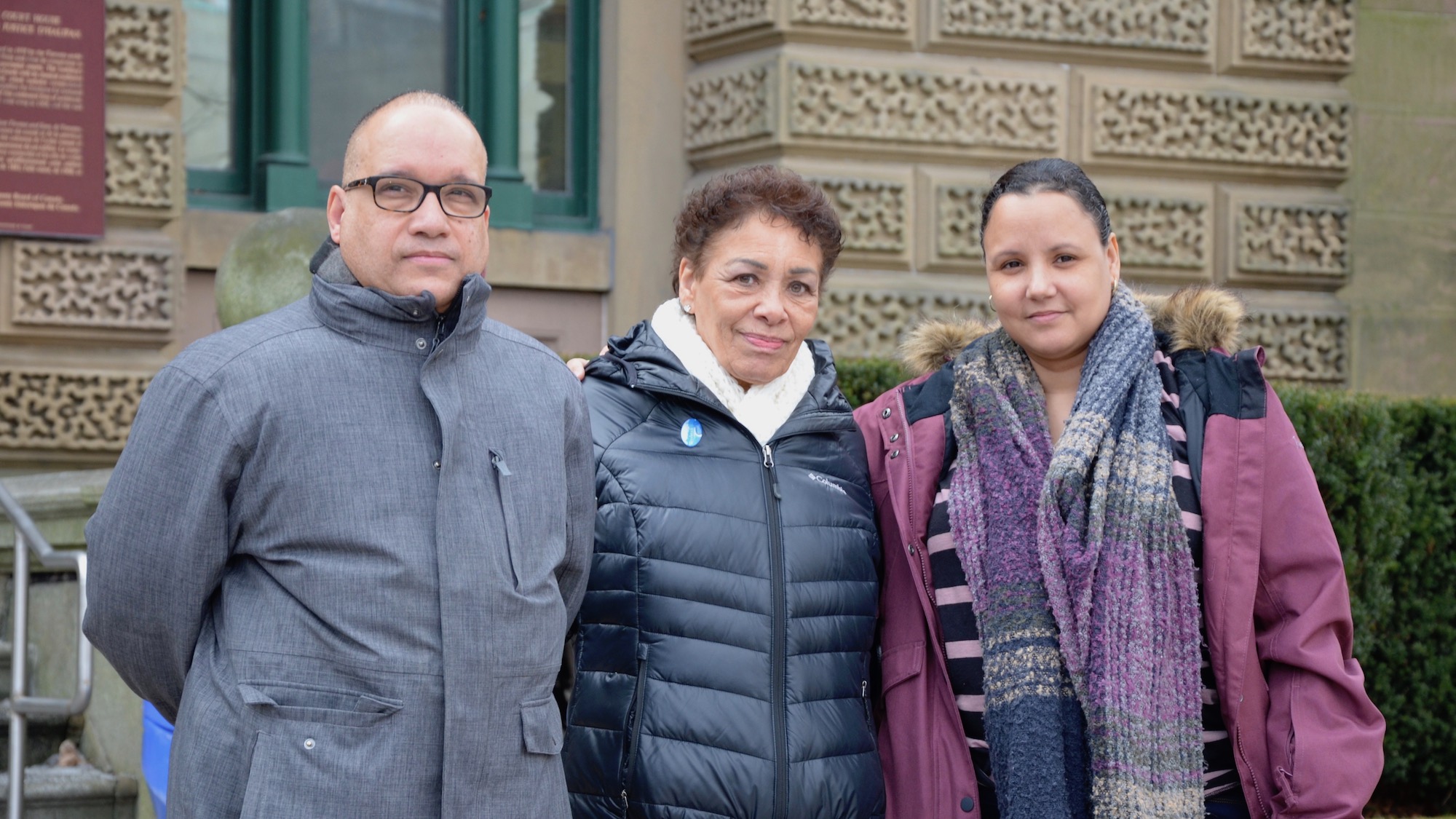Courts
Delay in case of woman accused of racist threats on Halifax bus
Dalhousie professor says this should be a hate crime

caption
Isaac Saney (left) and members of his family were in court Wednesday for the case of a woman accused of harassing him on a bus.A plea hearing for a woman accused of criminal harassment has been delayed for another month, much to the disappointment of the man she allegedly threatened on a Halifax bus last fall.
Isaac Saney was in Halifax provincial court Wednesday hoping Stephanie Lynn Rogers would enter a plea. Instead, the hearing was rescheduled.
“Having it drawn out really creates a tremendous amount of stress for myself and for my partner,” Saney said outside the courtroom.
Rogers, 44, of Halifax, is charged with uttering threats to cause bodily harm, criminal disturbance and criminal harassment.
Rogers’ lawyer, Brad Sarson, said he only received disclosure on the case the day before, and needed more time to review the case with his client. Judge Michael Sherar agreed to a delay and the case is now scheduled for March 6.
Rogers is accused of harassing Saney on a Halifax Transit bus on Oct. 25, 2018.
‘Frightening racist attacks’
Saney, a member of Dalhousie University’s Black Faculty and Staff caucus, said in an Oct. 26 Facebook post he and his four-month-old daughter were on a bus when two people made “extremely disturbing and frightening racist attacks and threats” against them.
Saney said several passengers came to his aid. The bus driver kicked the two people off the bus, but they were waiting for him and his daughter when they got off at Scotia Square.
He called police when the threats continued.
Not ‘sustainable’ as hate crime
Saney, who studied law at Dalhousie, said Wednesday the Crown considered charging the woman with hate crimes, but decided “it would not be sustainable” because it was too difficult to prove.
“I’ve said repeatedly it should be a hate crime because it meets all the elements,” said Saney. “Despite the fact the law is written in such a way that the burden to prove it is so onerous, a public policy statement could have been made by pushing the envelope of the law to its limits.
“I really think that given the egregious nature, given the rising political climate of intolerance, hatred and white supremacy, this was a perfect case to make a public policy stance.”

